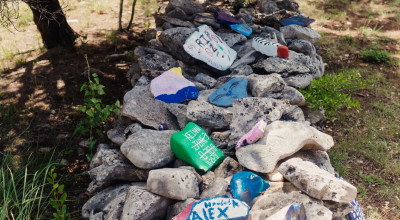Managing and Repairing Relationships During Addiction Recovery
August 4th, 2020
It’s not at all uncommon to hear from a recovering addict that they regret some or many of their actions while they were at a low point. As someone loses control of their health, they can also lose sight of what’s most important to them. When priorities are misaligned, and someone loses sight of themselves, destructive behaviors might come soon after. Relationships with potential friends, close friends, and even family members might be damaged or even destroyed.
The hardest step to addiction recovery for most is the admission of the problem and beginning the recovery process. When someone has reached the stage of recovery that they can begin to fix mistakes and past damages, relationships can also start to mend. If you or someone you are close to is finding themselves in this situation, here’s some advice to keep in mind and tips for managing your relationships moving forward.
Start at the Beginning
Relationships are very contextual. None of them ever work the exact same way or feel the exact same way. Despite this, relationships are built on the foundation of trust. If you or someone else is seeking to work on a damaged relationship, there’s a good chance that some level of trust has been violated. A good place to always start is acknowledging this violation of trust and stating your intentions to make amends. To state your intentions will never be enough, but it’s a necessary starting point.
Once you’ve made it clear that you intend to improve the relationship, allow it to take time. It’s not going to be possible to repair something as delicate as trust within a few days. Just like the process of addiction recovery, it’s going to require attention, focus, and a strong sense of perseverance.
Establish Healthy Habits of Communication
Start by really listening to what you’re being told. This is a given fact that people will agree with, but don’t always make sure to practice consistently. Instead of waiting for your turn to speak, it’s critical to understand and hear out how they have been affected by your actions. Listen, understand, and react appropriately to what you’re learning. When you learn to listen, you’ll find progress will start to follow quicker that you might have expected.
When people know they’re truly being heard, they’ll be even more likely to open up. Demonstrating good listening skills creates an environment of openness and progress, your friends and loved ones will buy right into it.
Set Realistic Expectations
Your relationships with your friends and loved ones may not ever be the same. Understanding that time and hard work alone still may not fix things entirely as you may remember them. No matter what you say and what you pledge to them, they can never understand what you’re thinking. Do not let your hopes get up if you’re finding that people are maintaining distance from you longer than you might have thought.
On top of the test of time, your relationships may not be very recognizable to you. Some people might not want to continue contact at all. As much as you’re committed to reparations, giving them space, or even accepting that forgiveness may not be possible at all might be necessary. Even those who do actively pursue trying to mend broken relationships might not treat you the same way that you might remember. Understand that in this scenario, it may be for the best to try to move on. Despite how difficult it might be to know when to let go, you may save yourself problems further down the road if it’s not working out.
You could go the extra mile in a variety of ways and people may not be interested still. Of course actions speak louder than words in any case, but they aren’t always going to move mountains. You owe it to them to do favors like reimburse lost money, broken property, or volunteer your time to help them out somehow. Your actions will always mean something, if not to the person you owe it to, to yourself and your progress at the least.
Most Importantly, Remember Yourself
Being focused outward during a time where you need to adopt a level of benevolent selfishness is entirely counterintuitive. Of course, it’s not impossible, but to deny the inherent challenge of balancing both would be unrealistic. Some might understand what you’re going through; others may not.
No matter how devoted you are to fixing relationships, you need to know when to draw it back for your own sake. If at some point you find your work on others getting in the way of your own recovery, do what you need to retain focus on what’s most important. Addiction recovery should always take priority over all else.
You’re likely trying to remember a slew of new habits to build, vital information to keep up with, and people to give your time to. You might overextend yourself or make mistakes sometimes. Allow yourself breathing room and forgive yourself for the problems you encounter in your journey of recovery. Chances are, you’ve become quite adept at this habit already if you’re to the point of repairing relationships, but remembering to keep it in mind is still essential. Remember any progress for what it is: a step forward towards your future.


